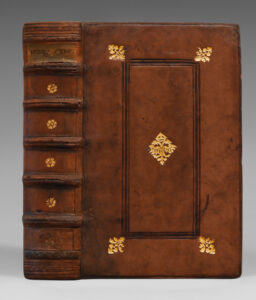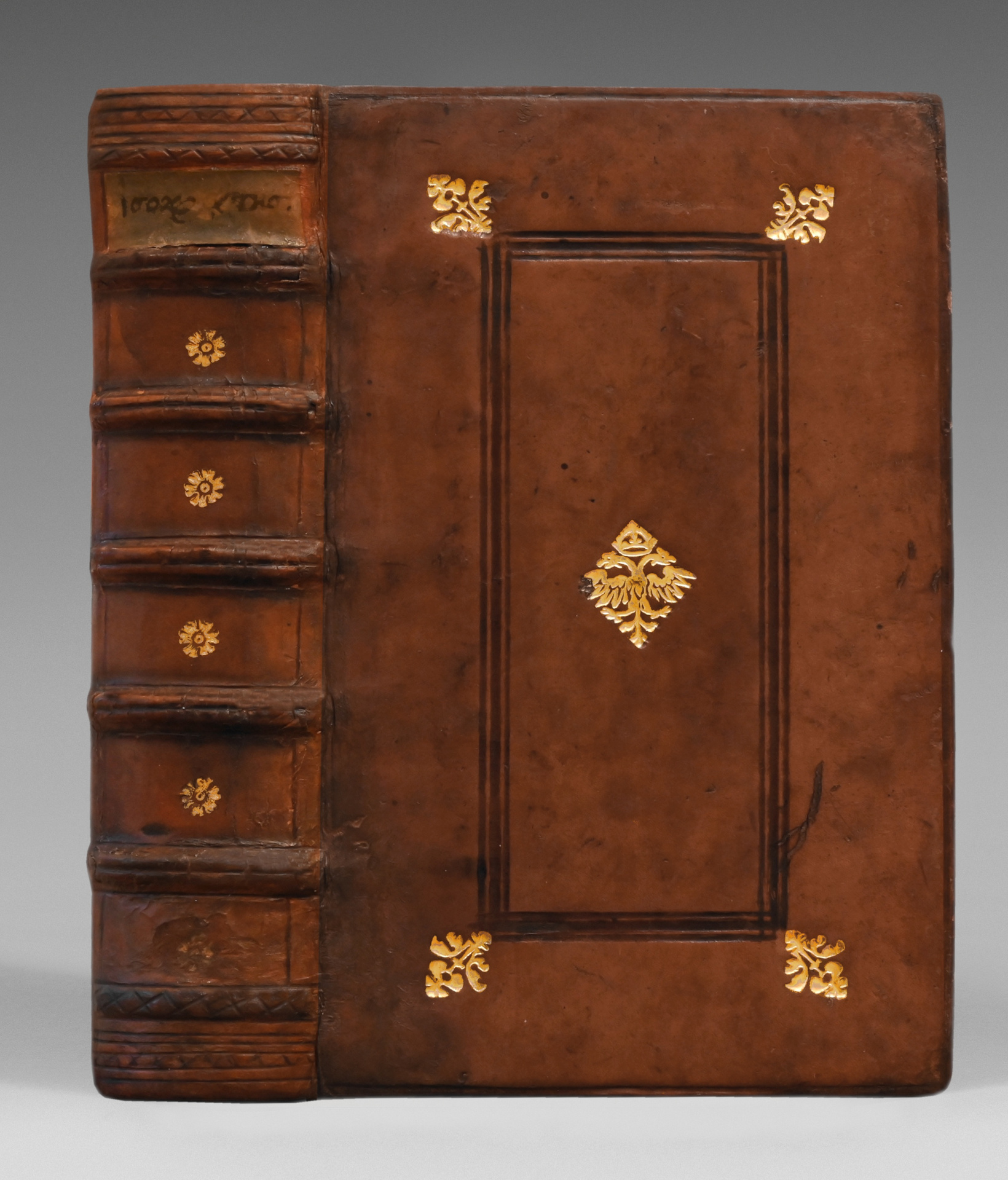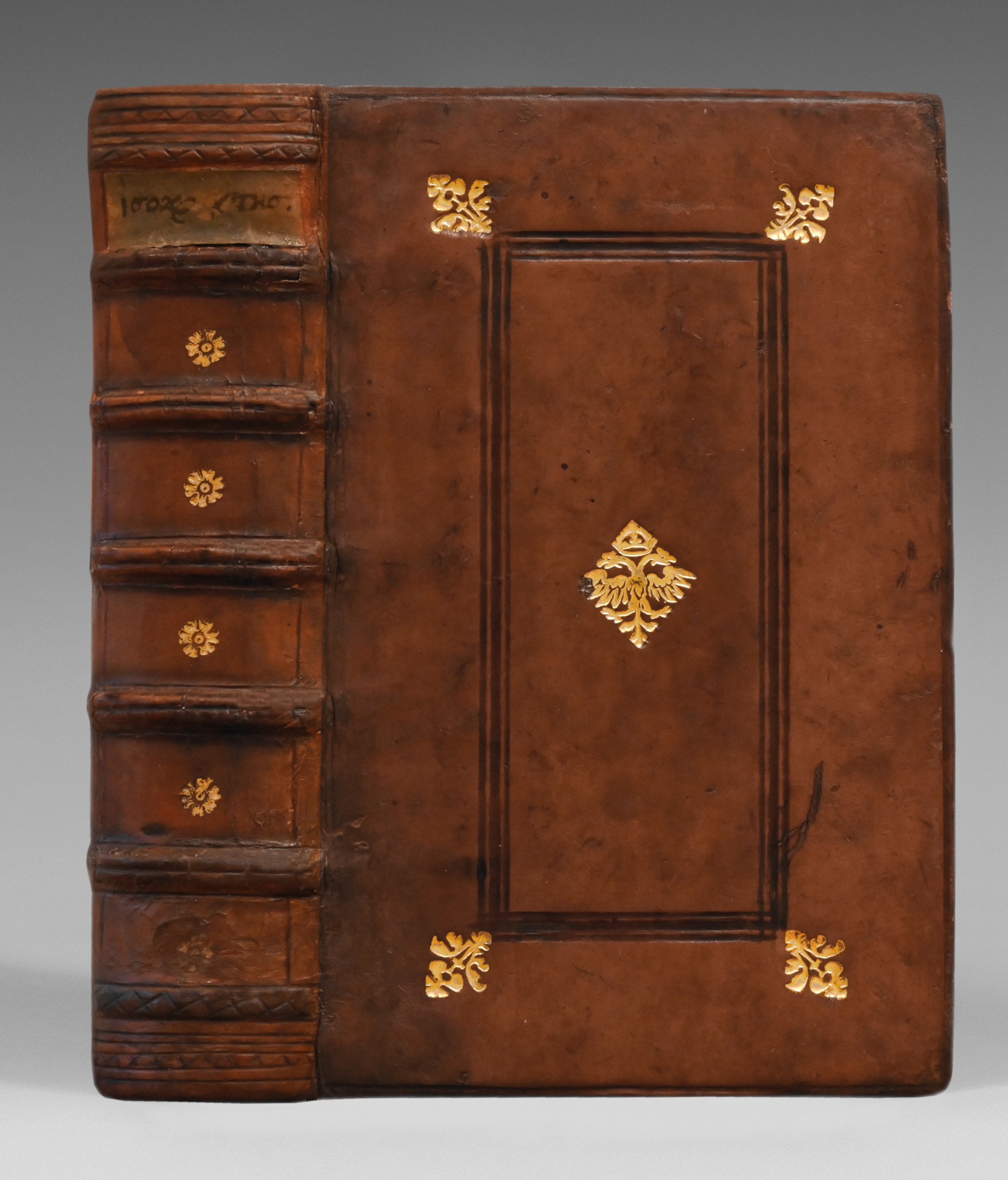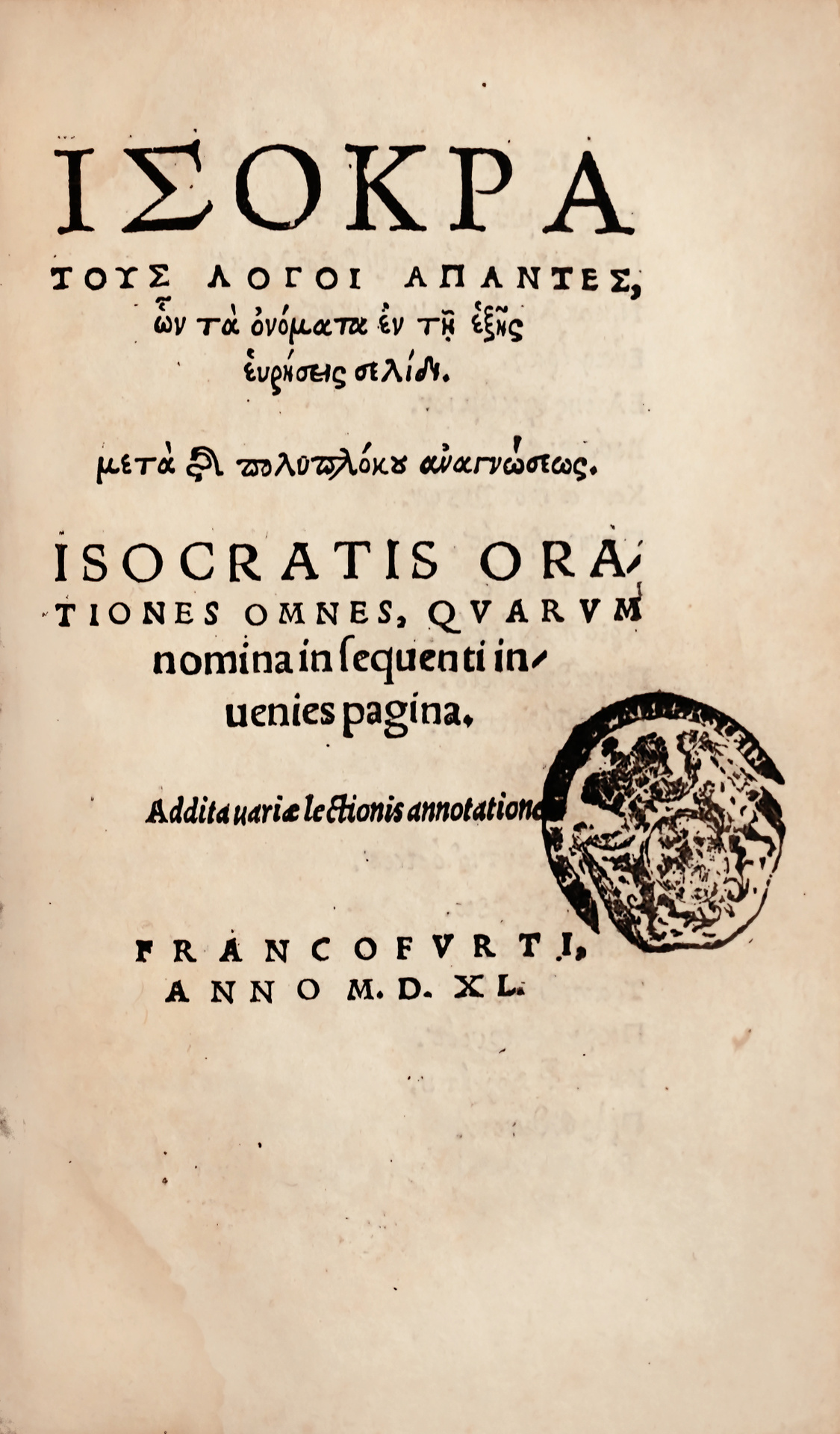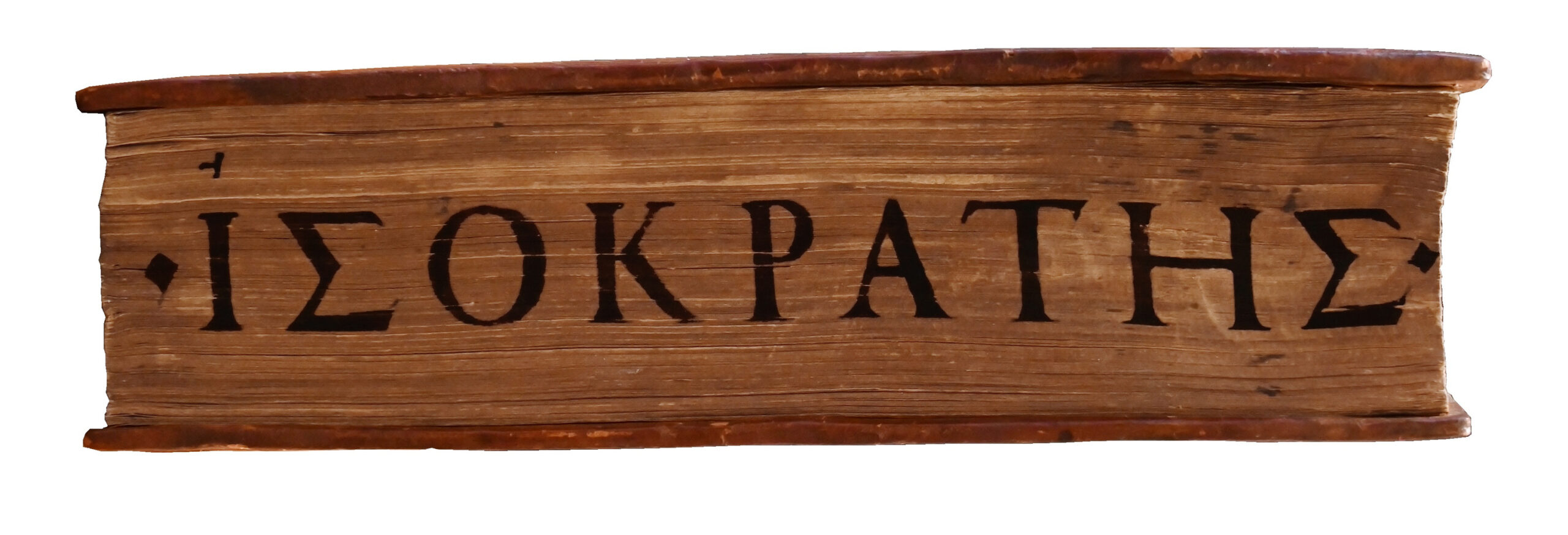Frankfurt, n.n., [1540].
8vo (157 x 96 mm) of (28) ll., 349 ll. of which the first blank, (3) ll. Fawn calf, triple blind-stamped fillet around the covers, gilt tool representing a double-headed eagle in the centre, corner fleurons, spine ribbed, lettering piece on vellum, title in ink on the edge. Contemporary Parisian binding.
Dimensions of the binding: 163 x 100 mm.
Very rare edition printed in Greek in Frankfurt around the year 1540.
The wealth of his father, who owned a flute factory, allowed Isocrates to receive a thorough education. His masters were Gorgias and probably Teisias, Theramene and Prodicus of Teos, renowned sophists and rhetoricians. Thanks to his astonishing longevity, Isocrates shared the history of his city for a century, from the time of hegemony under Pericles to the beginning of the political and economic decline that accompanied the Peloponnesian War. Then he witnessed the vain efforts of Athens to regain its power thanks to the Second Confederation and, finally, the loss of its autonomy under Philip II of Macedonia. Isocrates, the initiator of Panhellenism, saw in Philip the embodiment of this idea and, according to a tradition, let himself die the day after the Battle of Chaeronea, when Philip destroyed the image of this peaceful ideal.
His political thoughts are expressed, first in the 380s, in his masterpiece, the Panegyric, a call for cooperation between Sparta and Athens, under the latter’s hegemony, in a Panhellenic programme to resist the Persian king. Thus Isocrates launched and developed the idea of the political and cultural unity of the Greeks.
Three speeches mark his distance from the radical democracy of Athens: In To Nicocles, King of Salamis of Cyprus, he outlines the duties of a monarch, duties he believes were fulfilled by Nicocles’ father Evagoras, whom he praises in the speech of the same name, inaugurating in it a new literary genre, the ‘enkomion’, praise in prose; in Nicocles, he outlines the duties of citizens; in Bousiris, another ‘enkomion’, he refers to the mythical Egyptian king who bore this name. In his speeches, Isocrates’ attachment to a monarchical ideal becomes ever more apparent. Seeing his pan-Hellenic ideas threatened by the rise of Thebes, an ally of the Athenian democrats, he attacks it in the Plataica, and then in Archidamos, he supports oligarchic Sparta. In the middle of the 350s, he takes a stand on the internal politics of his city with the Areopagitica and the speech On Peace: he opposes radical democracy and proposes a strengthening of the power of the Areopagus, an aristocratic and conservative body composed of former magistrates. Finally, in Philip, he returns to the idea of panhellenism, this time with Philip of Macedonia as the unifier of Greece; he thus opposes the narrowly patriotic policy of Demosthenes and serves the propaganda of the Promacedonian party.
One of the famous Parisian Renaissance bindings made for Marcus Fugger (1529-1597).
An elegant copy bound in Paris for Marcus Fugger (1529-1597). Born into one of the richest European families, Marcus Fugger, son of Anton Fugger, appointed banker to Charles Quint, “was himself a banker of the city of Augsburg and adviser to Rudolf II. His taste for books and splendid decorated bindings made him a rival of Mahieu, Grolier and Battista Grimaldi. As for the bindings of his libraries, they are in glazed fawn calf, perfectly executed: ribbed spine, and sober decoration on the covers, enhanced by corner fleurons and a characteristic central iron. Part of the collection, which passed into the family of the Princes of Öttingen-Wallerstein, was dispersed at public auction in Munich in the 1930s (Catalogue IV, Munich, 1935, n° 185). The copies bear his initials as an ex libris or, as in this case, his autograph signature on the back cover.
In this case, it is an “exceptional combination of a major text of European history and one of the most enviable provenances of the Renaissance”.
The twin copy – Venice, Valgrisi 1545 – bound for Giovanni Battista Grimaldi was sold for 750,000 FF (115 000 €) on May 3rd, 1987, 34 years ago (Ref : Livres Précieux, n° 37).
Provenance: Marcus Fugger (1529-1597, sale of May 11th, 1934, lot 251, with his full name handwritten in brown ink on the inside cover) – Detting-Wallerstein library (wet stamp on first title).
